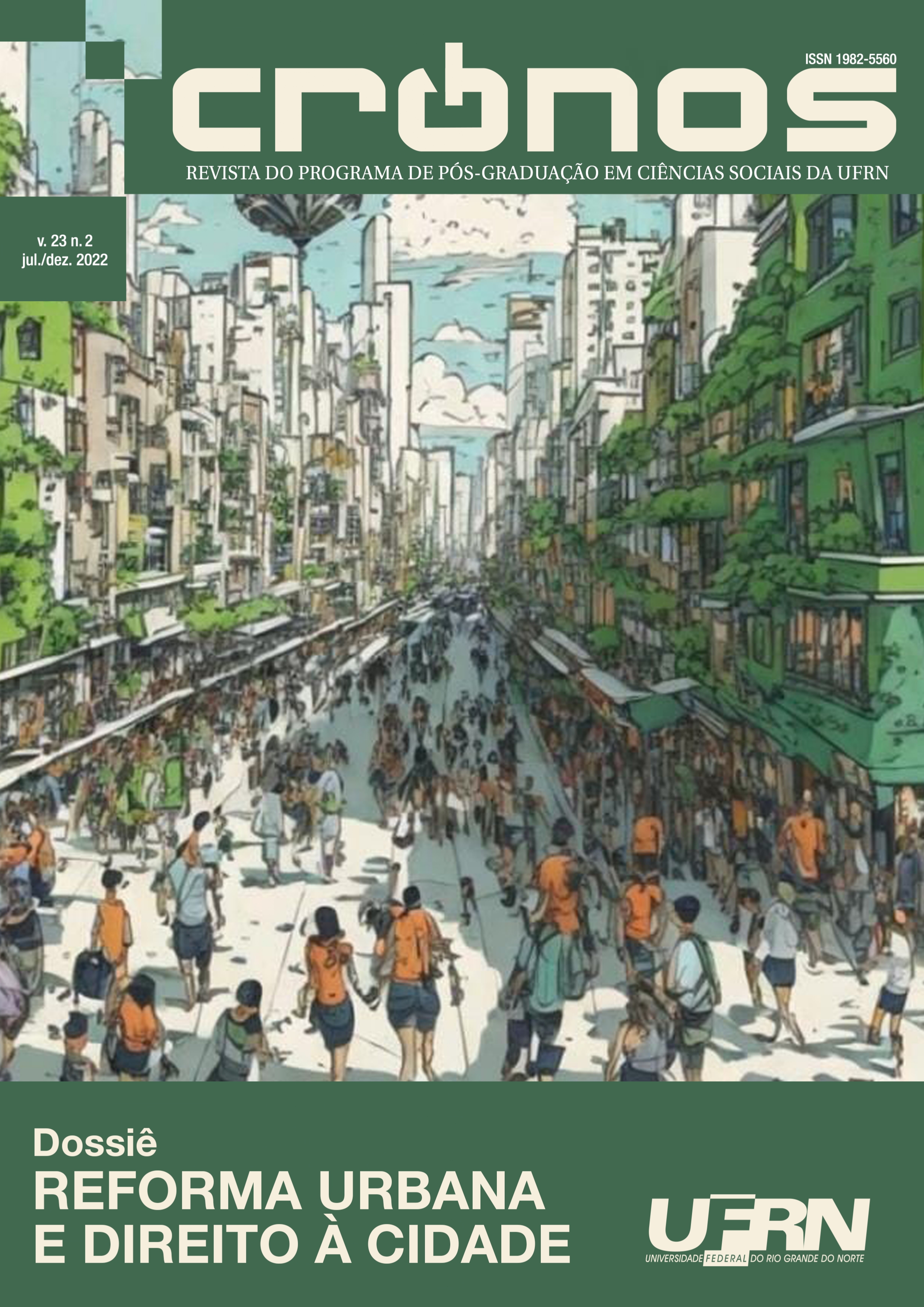REAL ESTATE TAXATION AND THE RIGHT TO THE CITY:
Reflections on the potential for recapturing urban capital gains in Natal-RN
DOI:
https://doi.org/10.21680/1982-5560.2022v23n2ID33559Keywords:
Real Estate Taxation, Recapture of urban assets, Right to the cityAbstract
This article analyzes real estate taxation in Natal-RN based on IPTU and ITBI, taxes recognized for their potential to recapture urban capital gains. The municipality analyzed has a marked real estate dynamic, but still lacks urban planning that connects municipal taxation and allows for a more equal distribution of bonuses from this collection. In this sense, a reflection is made on the ability to raise funds for urban development in the context of an agenda of ultraliberal inflection in the country, which has a direct impact on cities, historically dependent on resources from other federative entities to implement urban infrastructure. In view of this, the municipal legislation of these two taxes is analyzed, the revenues from both and the municipality's expenses with urban development and, finally, the distribution of the IPTU and ITBI collection in the neighborhoods, distributed in the four administrative regions of the municipality, as well as by different typologies. From the analysis of the data, it is questioned how these taxes, understood here as urban and tributary instruments, can still be used in favor of the financing of the cities, for the realization of the social function of the property and, in a broad perspective, in the guarantee of the right to city to the population.
Downloads
Downloads
Published
How to Cite
Issue
Section
License
Copyright (c) 2023 Revista Cronos

This work is licensed under a Creative Commons Attribution-NonCommercial-ShareAlike 4.0 International License.


 English
English Español (España)
Español (España) Português (Brasil)
Português (Brasil)


